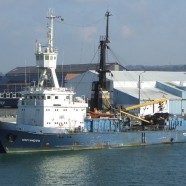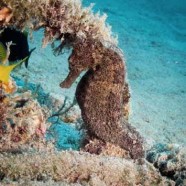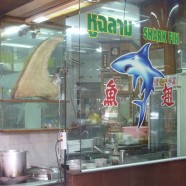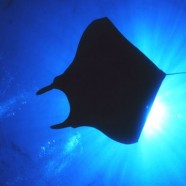“On the Trail” n°4
Here now the 4th edition of « On the Trail »
Information and analysis bulletin on animal poaching and smuggling.
1st January – 31th March 2014.
112 pages, 468 events, 352 information sources.
Seahorses, sea cucumbers, corals, giant clams, queen conches and fishes, pages 3 to 11
All dials are in the red. On the endangered species market prices are soaring. China and the world exotic pet trade are weighing heavily. The red-fronted parrot in Congo smuggled by Blue Helmets are sold for 800 US$ on Internet. Rhino horns reach 100,000 US$/kg, leopard skin more than 30,000 US/$. Mumbai golden youth gets high on cobra venom (180,000 US$/l). Isilo, the elephant who became a symbol of South Africa, is dead. His 2 tusks worth 600,000 US$ have disappeared. Poachers were the first to find his body by spotting the vultures. Suspicion lingers. Daytime rangers become night-time poachers. Prices go wild, the violence does also. Animals, thieves and rangers fall. Traffickers kill each other like traffickers of a drug cartel. Gangs rule, gangrene thrives. This is war. Justice is incoherent. From severe punishment to set an example to a mere bail, justice sometimes goes astray. Traffickers are often very young. Poachers ride BMWs. Killing methods are both modern and archaic.
A Taser for Soles n° 2
The European Fisheries Commission in Brussels recently authorized the extension of electric pulse beam trawling in the North Sea. It justifies this decision citing the ability of Member States to conduct pilot projects. 87 Dutch trawlers can now practice electric fishing, compared to 42 in 2012.
This new madness contradicts the 1998 fishing regulation, which, based in particular on the need to protect juveniles, prohibits the use of explosives, poison, soporific substances, or electric currents.
Sole is the main target species for this “new” fishing technique, which has actually been in practice for more than a century. The European pilot project has been running since 2006, but no progress reports have been submitted. Fish that have been caught in the trawl nets show burns, bruises, and skeletal deformations as a result of electrocution.
“On the Trail” n°3
“On the Trail” n°3 (pdf 80 p. 4.5 Mo)
Seahorses, sea cucumbers, queen conches and sharks, pages 3 and 4
Robin des Bois is pleased to present to you the third edition of “On the Trail”, a quarterly information and analyses bulletin on animal poaching and smuggling with a special item on the scheduled French illegal ivory crushing tomorrow.
Cherbourg Alarms
N°1
The Russian tuna seiner Marginella has been immobilized at Cherbourg since July 2007. After leaving Kaliningrad (Russia), she was heading towards South Africa via Ghana to fish bluefin and tropical tuna, under dubious conditions in regard with the conformity to the regulations of ICCAT (International Commission for the Conservation of Atlantic Tunas). She suffered outbreaks of fire in the machinery space in the North Sea and the English Channel, resulting in a total propulsion failure. She had to be towed to port by Abeille Liberté.
“On the Trail” n°2
Take a trip of beauty and cruelty in the following 80 pages (pdf. 4Mo), swing through the trees with the supreme pleated gibbon, still at liberty in the wild despite being endangered, get to the bottom of cyanide and of poisoned pineapples, survive the etorphine laced arrows, scheme with furniture dealers looking for ivory, discover the cunning tiger trappers, hunt down blackbucks with Bollywood stars, cruise towards China with 2,000 saiga antelope horns worth 22 million dollars, look into the eyes of a baby chimpanzee in a pathetic plastic bag at a Cameroon market, entrench yourselves in the fate of thousands of birds and animals unwilling migrants forcefully removed from their habitats, float down a river with a mutilated elephant carcass and find out about France’s stance on the future of illegal ivory stockpiles, eat Ganges river dolphin meat, pay homage to rangers and forest guards murdered in the wild by poachers …
Seahorses, queen conches and sharks, pages 4 and 5
Robin des Bois will Pursue them via “On the Trail”
Today, Robin des Bois, the Paris based NGO, released the 1st edition of “On the Trail”, a quarterly information and analysis bulletin on poaching and smuggling of endangered animals.
206 events of poaching, seizures, arrests and convictions which occurred in Africa, Australia, America, Europe and Asia are listed. This panoramic vision of cruelty and criminal acts on wildlife, between April 1 and June 30, 2013 makes one shiver and deliberate.
In three months the equivalent of 707 elephants, in tusks, were seized. Poaching of Mali elephants is increasing. Robin des Bois recently wrote to the Secretary-General of the United Nations, requesting that UN peacekeeping troops be given strict instructions to protect the subsisting elephant population.
The sharks fight back
Convention on International Trade in Endangered Species of Wild Fauna and Flora
CITES 2013 – Bangkok, 17:00 (local time)
Press Release No. 5
Of the 35,000 plant and animal species listed in the CITES* Appendices, only 15 fish will appear in Appendix I and 81 in Appendix II. Fisheries are strategic and political. They must feed humanity while also considering the oceanic territorial claims. Unfortunately, the bluefin tuna has disappeared from all monitors in Bangkok. By contrast, sharks are fighting back with force, accompanied by manta rays.














